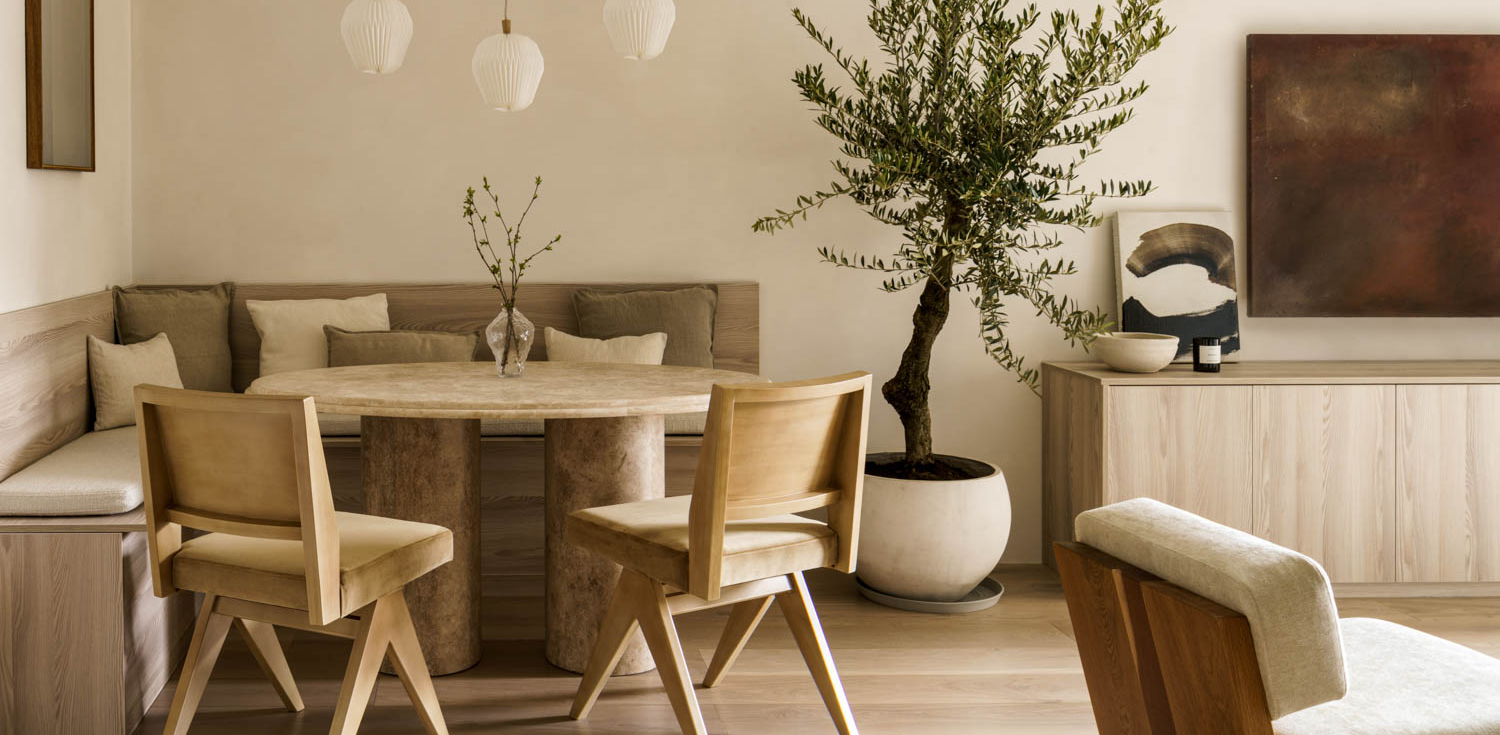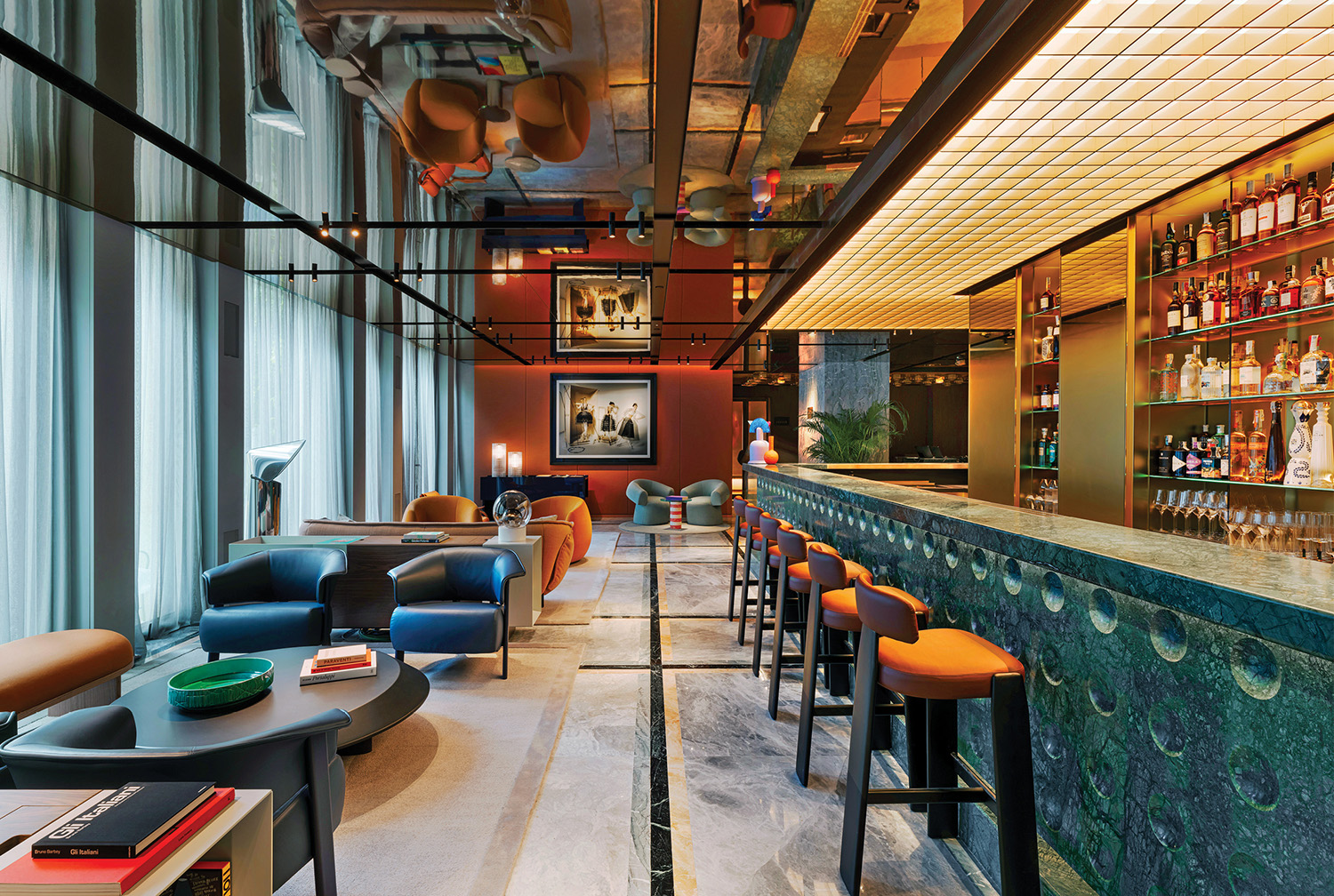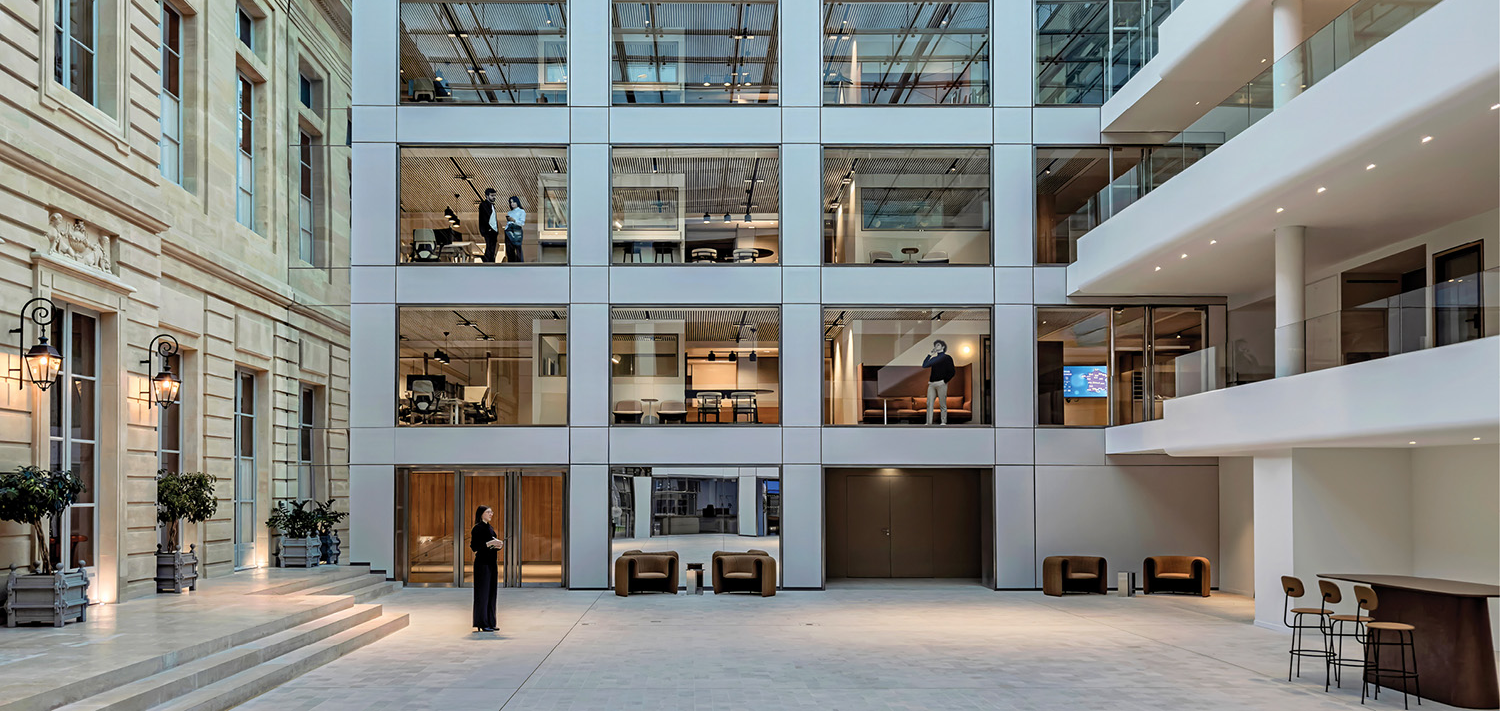Michael K. Chen Renovates a Commodious Park Avenue Pre-War Apartment
New York architect Michael K. Chen knows his way around
a tight floor plate. Sliding, pivoting elements that maximize
micro-apartments are his namesake studio’s specialty. But Chen proves just as adept with more commodious spaces. To wit: a 2,800-square-foot Park Avenue prewar renovated for a young couple, Laura and Jason Schwalbe, and their two children.

The four-bedroom co-op’s living and dining rooms were well proportioned, but the threshold between them—a small portal—was insufficiently porous. So, Chen and project architect Natasha Harper enlarged the opening and replaced the door with a Crittall-style aluminum-and-glass partition that provides liminal, light-funneling demarcation. “I look for ways that spaces can slip into and overlap with one another,” he says. “It’s how most of our clients actually live.”

Crowded service areas were transformed into efficient functional zones, like a cloakroom Chen adorned in an embossed, flamingo-print wall covering spotted at a Brooklyn shuffleboard club. Colors throughout are bold yet dusky, playing against the crisp architectural details. The dining room is painted a desaturated pink
(an eleventh-hour switch from white), while vintage Joe Colombo chairs come in their original burnished-blue and wine-red velvets. The azure of the living room’s custom sofa—“it’s the centerpiece, large enough for the whole family to plop down on,” Chen says—was sparked by Gio Ponti’s Parco dei Principi hotel in Sorrento, Italy. “We have an abiding love for post-war Italian and Scandinavian design,” he adds.

In the same room, contemporary artworks by Ilana Savdie and Karin Haas join graphic-edge furnishings—the black lattice of a 1904 Charles Rennie Mackintosh chair, for instance, juxtaposed with a curvy console handpainted to look like bone marquetry. In the kitchen, the clients’ favorite zone, glossy dimensional tiles bounce light, and an Enzo Mari
Il Gorilla print livens the breakfast nook. “Everything is different and interesting,” says Laura Schwalbe. Throughout, the mix is just that: a mélange of eras and styles that speaks to a knowledge of, and reverence for, the history of art and design. It’s the way we live—and design—now.


